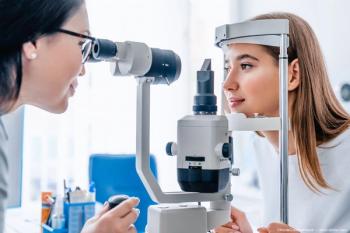
Misinformation rampant about unapproved stem cell therapies
According to a study, untested therapies can cause retinal detachment and blindness.
Reviewed by Marissa Patel, BA
Intravitreal injections of unapproved stem cell therapies have resulted in irreversible blindness. Lack of patient understanding of stem cell treatments have led to these devastating consequences as a result of predatory practitioners.
There currently are no FDA-approved stem cell therapies to treat retinal diseases, and the clinical trials evaluating their efficacy and safety are now underway. Marissa Patel, BA, an MD candidate at the University of Miami Miller School of Medicine, and Jayanth Sridhar, MD, of the Bascom Palmer Eye Institute in Florida, and colleagues conducted a survey of patients to determine their level of understanding of stem cell treatments.
Prospective survey and findings
The 87 participants who received the survey were adults who presented to a retina clinic because they needed intravitreal injections. The study ran from February 28, 2020, to March 18, 2021. The main outcome was the percentage of patients who would be willing to undergo an unapproved stem cell therapy. The results of the survey were concerning and reflected the lack of knowledge about the status of stem cell therapies. The survey found the following:
76.7% of respondents said they believed there are currently stem cell therapies for retinal disease being investigated in FDA-approved trials.
40.7% of respondents said they would consider stem cell therapies that are not approved by the FDA.
- 65.5% of respondents said they believed all clinical trials found online were regulated by the FDA.
- 10.5% of respondents said they knew about the risks associated with non–FDA-approved stem cell therapy used to treat retinal disease.
- 89.7% of respondents never spoke to a medical professional about the risks and/or the benefits of stem cell therapies for treating retinal disease.
- Consideration of the responses by ethnic group showed that 66% of Hispanic patients said they believed all clinical trials found online were regulated by the FDA in contrast to 34% of non-Hispanic patients who did not have that belief. This difference reached significance (P = .049).
- Consideration by gender indicated that 100% of men were aware of the risks associated with unapproved stem cell treatments for retinal disease and no women reported such awareness. This difference was significant (P <.001).
Caveats
Patel explained that stem cell clinics advertise online, and many advertise their research at https://clinicaltrials.gov/ without mentioning their investigational new drug status with the FDA. Information about stem cell clinics should be publicly displayed on commonly encountered patient education sites, such as retinal society websites with patient education aims, according to Patel. Proper dissemination of information is important because of the extreme risks (ie, retinal detachment and irreversible blindness) associated with unproven stem cell therapies.
The primary findings of this survey are the depth of the confusion among patients being treated with intravitreal injections regarding the federal regulations of the use of stem cell therapies to treat retinal disease. Education should be provided to patients about the status of FDA-approved trials of stem cell therapies and more specifically, that no stem cell therapies are currently available. Finally, women and Hispanic patients seem to be more vulnerable to the disseminated misinformation about unapproved stem cell therapies.
Marissa Patel, BA
Patel is an MD candidate at the University of Miami Miller School of Medicine in Florida.
Newsletter
Don’t miss out—get Ophthalmology Times updates on the latest clinical advancements and expert interviews, straight to your inbox.





























